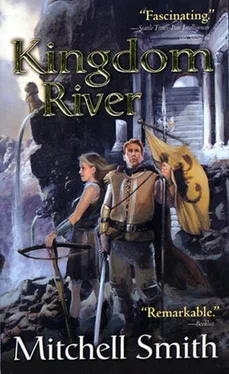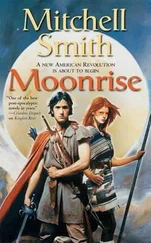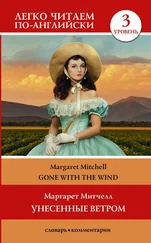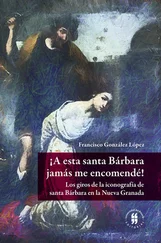The ghost sat silent.
"- And all a legal and administrative matter, Charles, and your responsibility. Neither Eric nor the army are to have anything to do with it… Understood?"
"Meaning, I suppose, that I tend to avoid unpleasant necessities?"
"Meaning that, Charles – and that it should be seen as a matter of law, not of my will and my soldiers."
"I'll see to it."
"Quickly, in the next few days, so send fast pigeons. We're going to need that money… Oh, and once the taxes are received – and all in coin, not kind – spare what we can for road-work in Sonora. Build a bridge, and name it after Stewart. A modest bridge."
"Yes…" The spectral Charles Ketch seemed to smile. "Really very sensible, I suppose."
"But sad for Johnson Neal's daughter?"
"Yes."
"Only if she's stupid, Charles." Sam slung his sword on his back. "If she's clever, she'll know her father hanged in her husband's place."
"Then, let's hope she's clever… And the matter of remounts for this… excursion up into Texas?"
Sam paused at the office door. "Every damn horse in Nuevo Leon, if necessary. Have your people pay their price and bring them in. If it has four legs and can carry a man, Howell is to have it."
"May have to pay with script."
"Get them in, Charles."
"Yes, sir."
"I want the first draft corralled in Ocampo in four days. The second, three days later in La Babia."
"Sam – I'll need more time, just a few days more."
"Charles, I don't have the time to give you. First and Second Regiments of Heavies and Second Regiment of Lights, reinforced, will be there; Howell is picking them up as he goes."
"The reserves?"
"Every trooper."
"Nailed Jesus. How are we going to pay them? We have no plans for calling up the reserves, Sam, except for war. For war, they'd wait for their money. This will be thousands of gold pesos every day!"
"This, Charles, is war's beginning."
"Dear Weather…"
"And what money we don't have later, I'll borrow from the Emperor."
"Oh, of course! Would you tell me why Rosario e Vega would agree to pay our army?"
"Oh, I think he'd prefer to, Charles, rather than see it coining down through Zacatecas to pay him a visit."
Ketch laughed, laughter from darkness, over the sound of rain. "Might work, at that… Alright. The remounts will be there, Sam. At Ocampo and La Babia. But it will cost us a fortune, and make enemies in Nuevo Leon."
"Any rancher who objects to parting with his horses, Charles, is welcome to go with them up to Map-Fort Stockton."
"Understood."
***
…In the corridor, two big soldiers with curved body-shields at rest, short-swords drawn, stood spaced down the passage a few yards apart. In greased boots and horse-hide trousers, with straps of oiled steel body-armor from shoulder to hip, they stood still as if frozen, their faces obscure behind helmet nasals.
A watch-mastiff's rising – and Sam's shadow, thrown by sconced lamplight along the walls – alerted both deaf-mutes as he came, and their helmets turned toward him smoothly as Warm-time machinery must have done.
The first guard was a woman – taller than Sam was, and wider. She made a comic face, wiggled her eyebrows at him as he passed her great grumbling dog, so he went smiling past the second soldier to the stairs.
Martha was lost. Almost two weeks in the Queen's chambers had taught her nothing of Island's directions, passages, and endless ups and downs.
The Queen's chambers were the whole top of North Tower, three great whitewashed drum-round rooms, one above the other. The lowest was guarded on narrow left-winding stone steps by six soldiers, three in green-enameled steel, and three in blue. Very polite soldiers, who'd nodded and smiled at Martha every time she went up or down.
They'd smiled and nodded, but never spoke to her, and all six unsheathed their swords each time the iron doors opened at the top or bottom of the stairs. They drew their swords… watched her coming to them, up or down, then sheathed their swords, smiled and nodded.
In. those few days, Martha'd learned that tower. Queen's chambers above, guardroom below, kitchen and pantry below that… then down more winding steps to the scrub-laundry, with its water barrels, kettles, stone tubs, and ever-hot iron stove. The laundress was Mary Po, a big silent scrubber with hands ruined by lye and hot water; there were no nails on her fingers. The girl Walda helped her, and ironed the Queen's robes and woven linen with flat polished stones hot from the Franklin, so the room smelled of cloth heated to nearly scorching.
There were all those levels of the Queen's tower, and places deeper still, down steeper steps through little iron doors. Darker places, where Martha was not permitted. The green-steel Guard captain, Noel Purse, had ordered her not, her first day.
"Guests, down there," he'd said. "Her Majesty's important guests, resting in chambers beneath. And that will never be your business."
"Yes, sir," Martha'd answered as if she were a soldier, since she felt like a soldier, though a girl, and was armed with her spear as a guard herself.
Down there, someone must have heard the captain talking to her, because the faintest howling began, so she supposed one of the guests had brought his dog-pet with him. – But later, when she mentioned the dog-pet to Maid Ulla, Ulla had made a child's warning face and told her it was people, and the Queen would visit them, but never let them out.
So, there was no dog-pet under the tower.
At first – perhaps because she was tired – Martha had thought she might be dreaming of the Queen's chambers, dreaming and drifting through them as she sometimes drifted in dreams. The huge round rooms, their stone walls lime-washed snowy white, were draped in great soft sheets of orange cloth and gray cloth, purple, rose, sky-blue and pinewood green, so there was color everywhere. Some cloths hung against the walls, and others fell across from round alder rafters to divide one place from another – so each great room was like a house with smaller rooms within it.
There were those richly colored cloth curtains, and woven tapestries of war, of hunting, of handsome Extraordinaries playing banjars, flutes, and drums among flowers in glass-ceilinged gardens. Then others of the same people kissing and fucking, and also summer wet-ships and winter ice-ships sailing the river through the three seasons… The tower chambers always bright with many hanging lamps, and sometimes sunlight shining through stone-slit windows sealed with glass very close to clear.
There was also see-through southern gauze – which Martha'd heard of but never seen – that hung here and there like smoke, and stroked her as she walked through it behind Queen Joan. All almost a dream, and seeming more so since the women – Ulla, fat Orrie, and the great ladies who waited on the Queen – stepping quietly on the carpets, appeared as if by magic when a curtain was suddenly pulled aside.
So the Queen's daughter, Princess Rachel, once appeared for breakfast with her mother – a princess seeming to Martha more serious than the story ones. Tall, dark-eyed, dark-haired, face too strong-boned for beauty, she'd stalked through drapery unsmiling. But introduced, had taken both Martha's hands with gentle courtesy, and said, "Welcome to our household."
Though later, buttering muffins with her mother at table by the solar's iron stove, she'd glanced at Martha – standing nearby with her spear – raised an eyebrow, and murmured, "Mother…"
"What?… What?"
The Princess had sighed, and said, "Never mind."
Ulla told Martha that Princess Rachel lived in a different tower, came to breakfast rarely, and the black stains on her fingers were writing-ink.
Читать дальше












